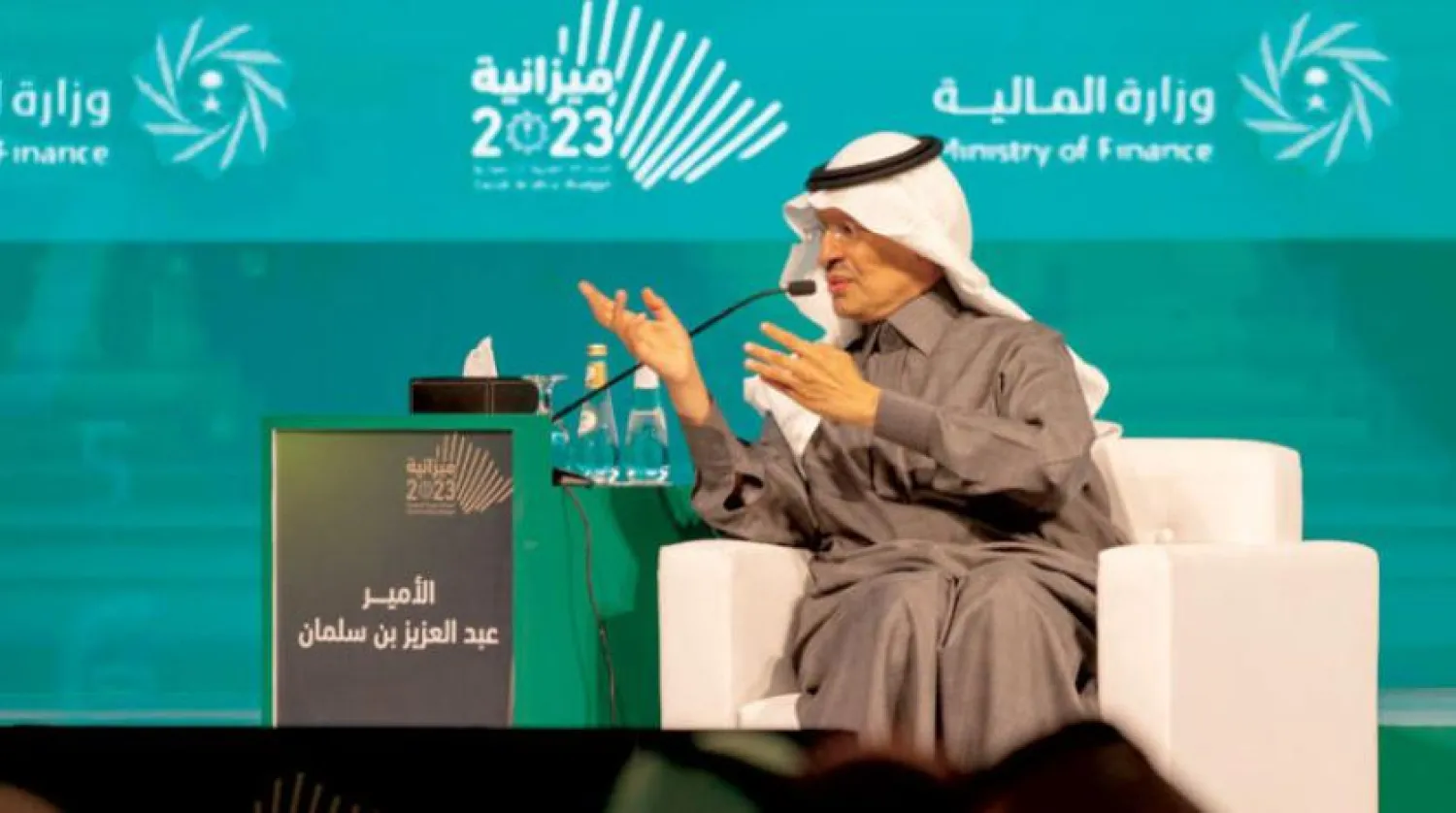Saudi Energy Minister Prince Abdulaziz bin Salman said that the OPEC+ operated according to a purely economic perspective, without entering into political aspects and alliances.
“OPEC+ operates from an economic position and does not get involved in political aspects,” he said on Sunday.
The minister’s comments came during the sessions of the Budget 2023 Forum, which was organized by the Ministry of Finance at King Abdullah Petroleum Studies and Research Center (KAPSARC), with the participation of a number of senior officials.
Prince Abdulaziz said OPEC+ operated in all stages to coexist with all variables, adding that the main challenge lied in preserving sources of income, regardless of certain influences, in addition to reducing market fluctuations to enhance investment opportunities and empower the sector.
He emphasized that the ongoing global developments have proven that OPEC+ has taken the right decision.
The collective efforts of the group have led to what he described as the “miracle” in 2020.
The Saudi Energy Minister insisted every OPEC+ alliance member take part in decision-making, adding that this “has helped us build trust”.
Moreover, he noted that the group succeeded in overcoming all geo-political challenges and the coronavirus pandemic, adding that OPEC+ would continue to focus on market stability in the year ahead.
“Group action requires agreement and therefore I continue to insist that every OPEC+ member, whether a big or small producer...be a part of decision-making,” he said. “Consensus has positive implications on the market.”
Meanwhile, Mohammad Abunayyan, Chairman of ACWA Power, said that the cost of renewable energy production in Saudi Arabia was the lowest in the world, stressing the need to separate between the regulator and the legislator in the energy sector.
Abunayyan noted that the Shoaiba oil-fired CCGT power plant complex in western Saudi Arabia uses approximately 62,000 barrels per day of light Arabian oil, while it produces 900 megawatts of electricity and 880,000 cubic meters of desalinated water. He indicated that in 2025 there will be “zero” use of oil.
The Chairman of ACWA Power went on to say that promoting local content required empowering the private sector.
He pointed to the local investors’ confidence thanks to the “high efficiency of the government sector”, stressing that the Kingdom would lead the world in clean energy.
Separately, the Asbar Forum underlined the importance of diversifying energy sources in the Kingdom and moving to a cleaner and more sustainable energy system through the production of green hydrogen.
In a report entitled, “The future of green hydrogen as clean energy in the Kingdom of Saudi Arabia,” the Asbar Forum said that Saudi Arabia has achieved great strides within the framework of Vision 2030 by diversifying energy sources and increasing local content, through the development of new industrial sectors and the use of existing supply chains.
The report concluded with a number of recommendations, including the importance of establishing an infrastructure to extend natural gas or hydrogen networks to be linked to industrial complexes in Jubail, Yanbu, industrial cities and others.
It also underlined the need to enact legislation and policies that stimulate the use of renewable and clean energy in manufacturing in particular and economic activities in general, and invest in renewable energy research and technologies by unifying efforts under the umbrella of King Abdullah City for Atomic and Renewable Energy, as well as concluding cooperation agreements with developed countries in the field of renewable energy.
The report urged companies to pay more attention to the negative impact of products on the environment and society, and the need to adopt green manufacturing concepts to avoid toxic and hazardous waste, as part of their social and moral responsibility.









